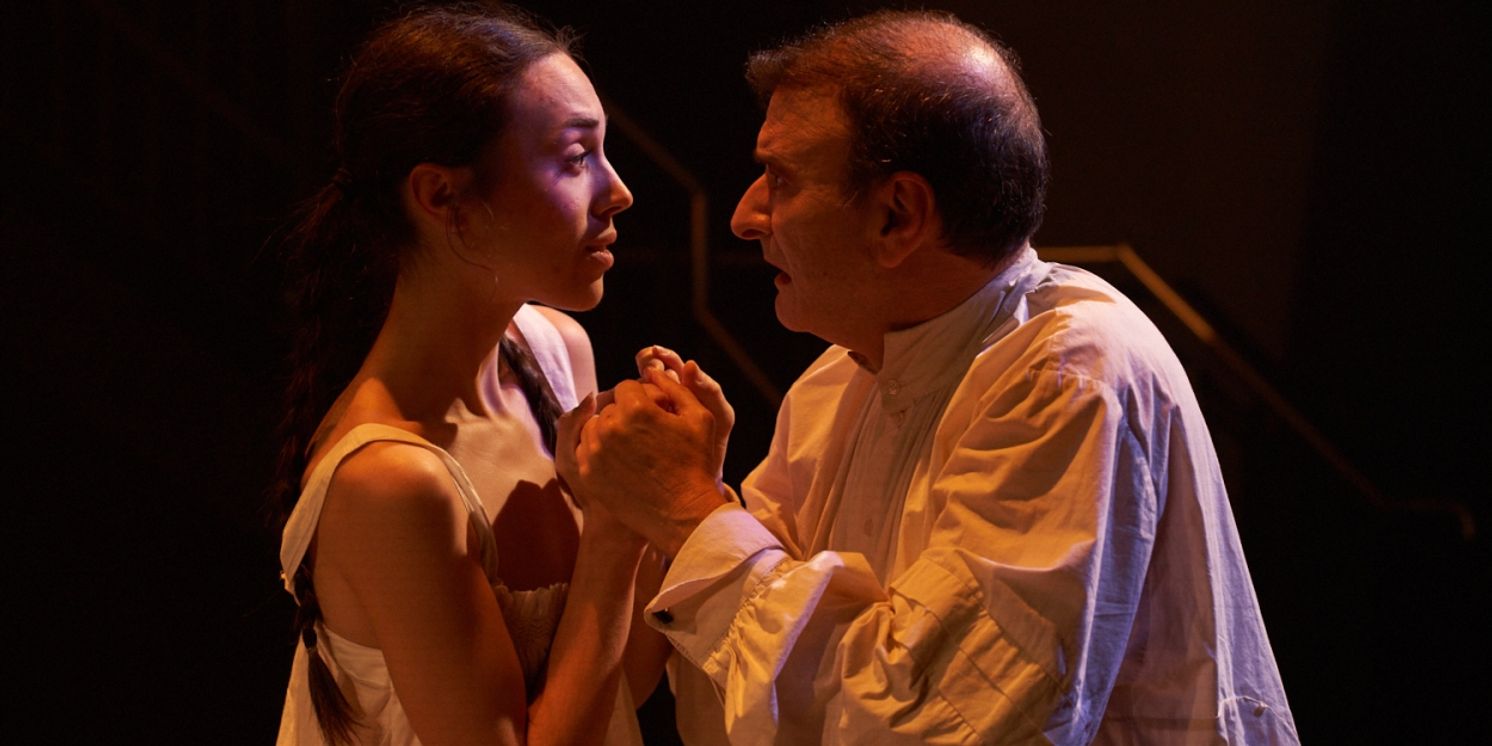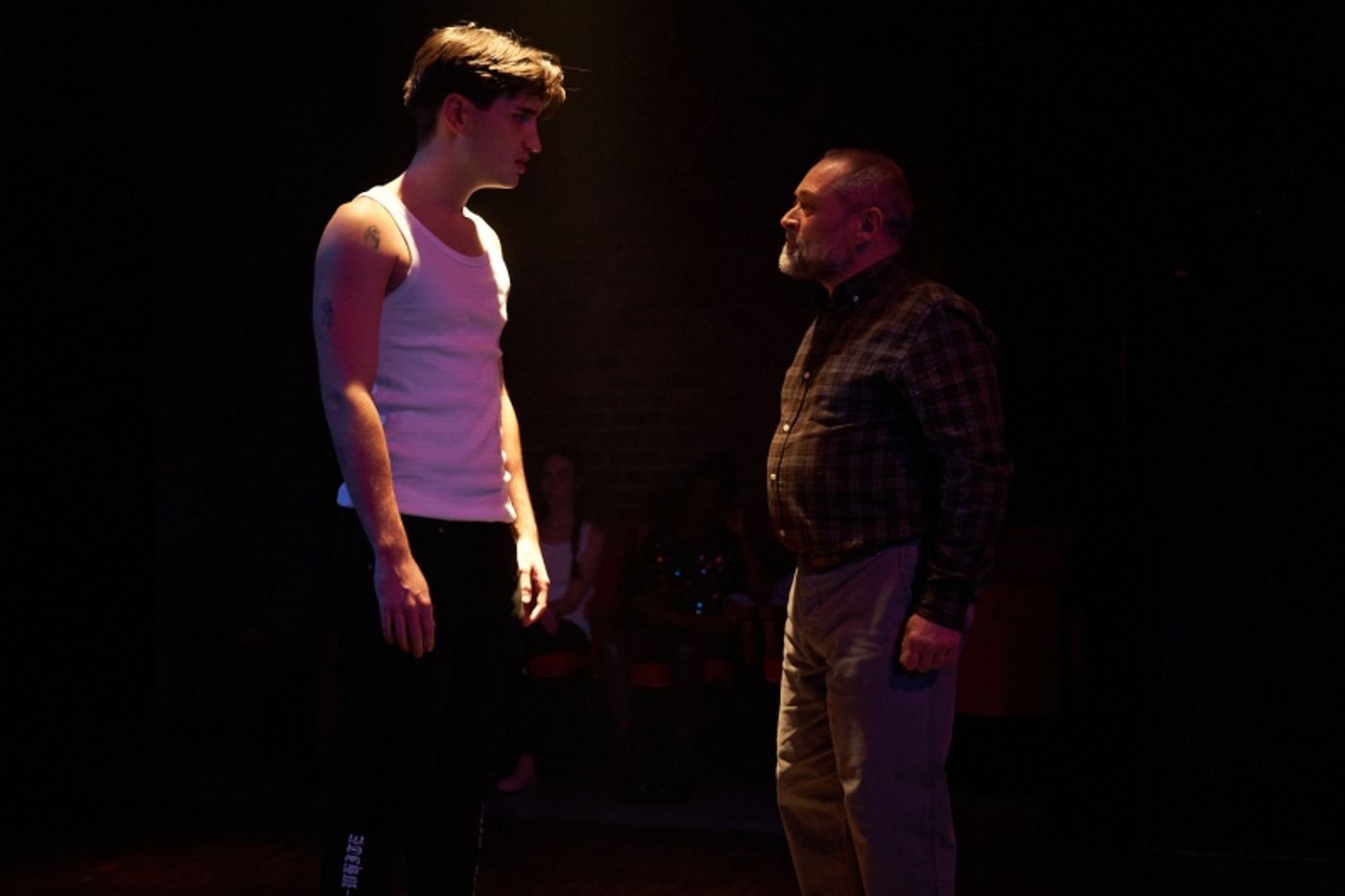Review: THE LOVE OF DON PERLIMPLÍN AND BELISA IN THE GARDEN, Cervantes Theatre
Early Lorca masterpiece revived in stunning style

 In The Big Book Of How To Be A Writer, it’s a grave solecism to qualify the adjective ‘unique’ - but what are rules for if not for breaking? Every night in the theatre is unique - that’s the thrill on either side of the fourth wall - but some are rather more unique than others. The Love of Don Perlimplín and Belisa in the Garden at the Cervantes Theatre is one of the more unique evenings you will experience.
In The Big Book Of How To Be A Writer, it’s a grave solecism to qualify the adjective ‘unique’ - but what are rules for if not for breaking? Every night in the theatre is unique - that’s the thrill on either side of the fourth wall - but some are rather more unique than others. The Love of Don Perlimplín and Belisa in the Garden at the Cervantes Theatre is one of the more unique evenings you will experience.
Don Perlimplín is ageing, 50 years old and a bachelor all his life, fearful of women physically and, probably, sexually. He is mothered by his long-serving maid, Marcolfa, who worries about what will happen to him when she dies - 20th century medicine is still in the future. She pushes him towards Belisa, a teenage beauty, who, in turn, is pushed towards him by her avaricious mother. He first fears her, then loves her even in the midst of her infidelity, then constructs a ruse to release her, an act laden with tragic poignancy.
Lorca’s personal favourite play, one that predates his great trilogy of Blood Wedding, The House of Bernarda Alba and Yerma, is all done in 45 minutes. And then we see it again.

It’s 25 years since Nicole Kidman’s performance at The Donmar Warehouse brought the phrase “Theatrical Viagra” into a reviewer’s lexicon and that dread phrase might be one reason why eroticism is so often absent from the stage - not so here. Director, Paula Paz, sets a charge running through the space with the first appearance of Maggie García’s Belisa and that is sustained for the next 90 minutes. It’s critical too, as the breach between The Body and The Soul is a key theme, one that ultimately drives the tragic denouement, as one seeks to cleanse the other.
García is tremendous as the young, but not naive, Belisa, rebelling in her own way against her overpowering mother (Montserrat Roig de Puig in a very funny cameo) captivating but distant, perfectly exemplified by the wedding night clasping of hands, but nothing else. (This version largely dispenses with the folkloric elements of the original and is surely all the better for it). Her succession of dresses, one as scarlet as blood, are wonderfully enhanced by Sammy Emmins’ active, but never intrusive, lighting. On so spartan a set, everything is lovely to behold.
Juan Carlos Talavera holds the centre as the eponymous Don Perlimplín, his make-up, demeanour and melancholy reminiscent of Pagliacci from Leoncavallo’s opera. His best work is done in the small spaces only the most experienced actors can find, his comfort in the intimacy of being dressed by Marcolfa (Maite Jiménez), his comical hesitancy in executing her plan, his plaintive re-appearance in the second half.
Which is, unlike the first, in English (Lorca is served well by Caridad Svich’s poetic but snappy translation) and set in the present day. It’s almost a new play - we recognise the words from the earlier surtitles, but the whole vibe is different and so are our judgements, if not our conclusions.
Paul Rider is more nervous, jittery with the ministrations of his brusque, efficient carer (Mary Conlon equally good as the second Marcolfa) more middle class than upper class. But the big change (and yet not a big change) is in splitting Belisa’s role between a reflective, observant García and an assertive, buffed up Álex Pérez, more predatory, aloof one moment, involved the next when he sees what’s in it for him.
It tilts the balance of the play, but does not demolish its central concerns and also nods in the direction of its author, gay himself, who must have felt the pain of desire unrequited, of the delicious pull of transgression, of the onrushing fate that lay not so far in his future.
It’s rare for gimmicks to pay off in theatre, rarer still that a master’s writing can be so radically interpreted and remain fully formed, but different, but that’s my takeaway from this gorgeous production. It’s a play that brings laughs that soon crack and dry in your throat, a charming realism in the characters within a surreal dreamscape of a setting and a reminder that we contain many versions of ourselves, some of which we only find when pitched into the trauma of love. A bolt from the blue that can come at any time, and for which we are never prepared.
The Love of Don Perlimplín and Belisa in the Garden at the Cervantes Theatre until 25 November
Photo Credits: Elena Molina
Reader Reviews
Videos

